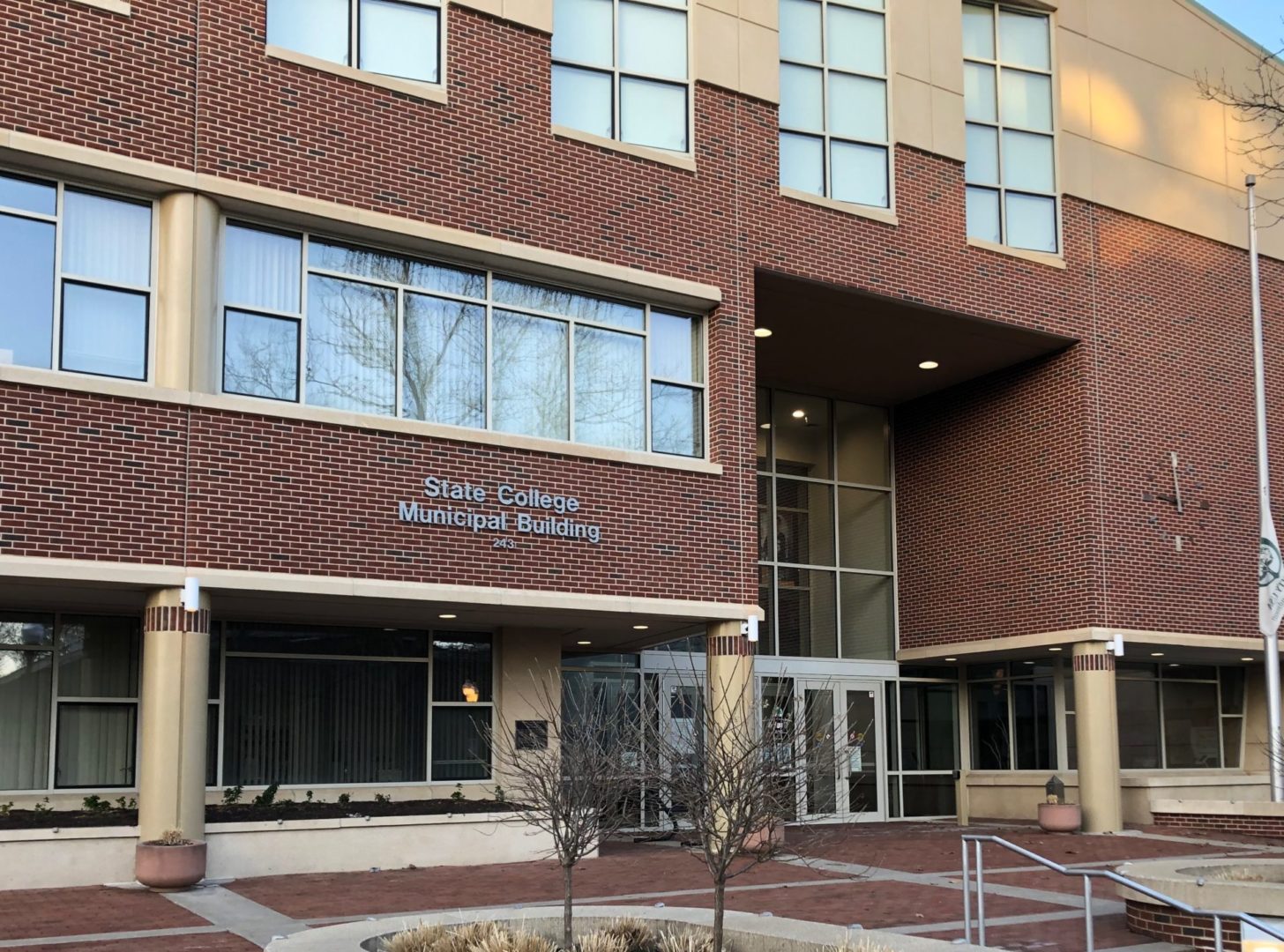
State College Municipal Building. Photo by Geoff Rushton | StateCollege.com

State College Municipal Building. Photo by Geoff Rushton | StateCollege.com
State College Borough Council is gearing up to appoint an interim member.
Council on Monday formally accepted the resignation of Divine Lipscomb, effective May 12, and agreed on a process for appointing a replacement to serve out the remaining 20 months of his term.
Lipscomb, who became State College’s first Black council member after he was elected in 2021, submitted his letter of resignation on March 28, but it was not made public until the agenda for Monday night’s meeting was released on Friday afternoon.
“I find it very emotional that you’re leaving, because I not only considered you a colleague, but a very, very dear friend,” council member Gopal Balachandran, who was elected alongside Lipscomb as part of a progressive slate, said on Monday night. “I remember everything we went through when we were part of that slate to get elected and what a big difference it was. Now it feels kind of normal that council would look and appear this way in terms of reflecting not just age diversity within the borough of State College but also racial and ethnic diversity. It’s because of a lot of the work that you did.
“To the extent that I can congratulate you and have to accept your resignation, it is really, really with such sadness. My family and I are personally going to miss you and wish you the best of luck. We’re happy for you, but it’s with an incredible level of sadness.
Lipscomb, who attended Monday’s meeting via Zoom, did not state why he is resigning and did not respond to StateCollege.com’s message seeking comment. He wrote that it was a “difficult decision” made “after much consideration.”
“It has been an immense privilege to serve alongside you and the esteemed members of the Borough Council, both past and present,” Lipscomb wrote in the letter to Mayor Ezra Nanes and the other members of council. “I am grateful for the opportunity to have worked collaboratively with such dedicated individuals who are deeply committed to the betterment of our community.”
After accepting Lipscomb’s resignation, council voted unanimously to approve a process and timeline, proposed by council President Evan Myers, for appointing an interim member .
State law requires that council must select a qualified and registered voter of the borough and deliberations must occur at a public meeting. Because of term limit provisions in the borough charter, former council members who served two consecutive terms and have not been off council for two years or more are not eligible.
The six remaining council members have 45 days to fill the seat and must make an appointment by 11:59 p.m. on May 30. If council does not appoint a new member by then, the decision can be made by the Centre County Court of Common Pleas based on a petition by council or five residents of the borough.
Otherwise, there are no specific requirements or processes in state law or the borough charter for appointing a member.
Council agreed to follow a process similar to those used for filling vacancies for mayor and two council seats in the past five years. Eligible residents will be invited to submit letters of interest and will make public presentations before the remaining six members of council vote on an appointment.
Information about how to apply and how the public can submit questions for the candidates is expected to be posted on the borough website this week, Borough Manager Tom Fountaine said.
Here’s the timeline and how the process will work.
• May 1: Deadline for the public to submit questions for applicants.
• May 3: Deadline for interested residents to submit letters of interest.
• May 6: During their regular meeting, council members will discussions about those who have expressed interest in the position, finalize the top questions that applicants can address during their presentations and finalize the order of presentations.
• May 13: During a council work session, applicants will make presentations in which they can choose to address the questions provided in advance, though they are not required to answer all or any of them
• May 20: Council will review and discuss the candidates. Council members will then be selected in random order to make a nomination. The first candidate to receive a majority of votes will receive the appointment and no further nominations will be made.
The person appointed will serve on council through Dec. 31, 2025.
Myers said he believes the process provides for a level of transparency in making a council appointment that is uncommon among Pennsylvania municipalities.
“To be elected to council, to be elected mayor, we all stand before the voters and they ask us questions. We have to give our answers. They make the decision,” Myers said. “We can’t do that exactly the same way … because the next [municipal] election will be in a year and a half or so. So we have to represent the voters; we have to represent that transparency.
“So one part of this process is we’re going to ask the folks that want to become a council member to stand before the community by standing before council, appearing before C-NET, and even though the voters are not going to directly pick them, we as agents of the voters will in fact be doing that and we were elected by the voters.”
Receive all the latest news and events right to your inbox.

80% of consumers turn to directories with reviews to find a local business.